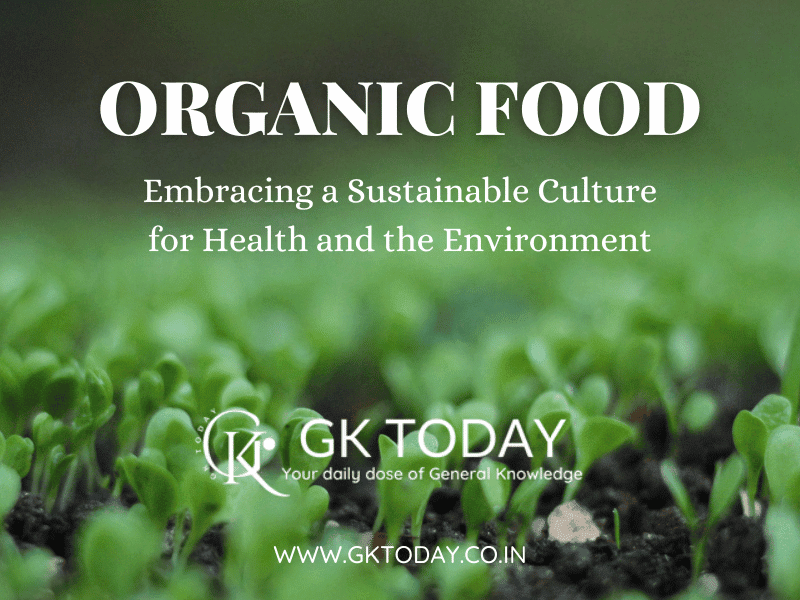Introduction:
In today’s rapidly changing world, the demand for organic food has transcended being just another fad and has evolved into a profound lifestyle choice. Organic food represents a conscious decision by individuals to prioritize their health, contribute to a sustainable environment, and support ethical farming practices. As consumers increasingly recognize the potential risks associated with conventional farming, the organic food movement has witnessed remarkable growth.
This article delves into the culture of organic food, exploring its numerous benefits, and examining the meticulous methods used to cultivate organic produce. Additionally, we will compare various fruits, vegetables, and other grocery items, highlighting the contrasting aspects between organic and non-organic options, including nutritional value, environmental impact, and overall quality.
The Culture of Organic Food:
At the heart of organic food lies a profound philosophy of sustainable and ethical farming practices. Organic farmers adopt a harmonious approach to agriculture by working in synergy with nature, utilizing natural resources responsibly, and minimizing the use of synthetic chemicals and harmful interventions.
These custodians of the land strive to maintain biodiversity, protect soil health, and prioritize the well-being of the animals they raise. This nurturing and mindful culture extend beyond the fields as conscious consumers embrace organic products to support healthier lifestyles and contribute to a cleaner, greener planet.

Benefits of Organic Food:
- Nutritional Value: Organic fruits and vegetables are not merely visually appealing but also boast a superior nutritional profile. Studies have demonstrated that organic produce is richer in essential nutrients like vitamins, minerals, and antioxidants. Comparatively, conventionally grown counterparts often pale in comparison when it comes to delivering these vital nutrients to our bodies.
For instance, organic fruits and vegetables have been found to have higher levels of certain nutrients, including vitamin C, iron, magnesium, and phosphorus, making them more nourishing for consumers seeking optimal health.
- Reduced Exposure to Chemicals: One of the primary tenets of organic farming is the stringent prohibition of synthetic pesticides, herbicides, and genetically modified organisms (GMOs). As a result, consumers who opt for organic food significantly reduce their exposure to harmful chemicals commonly found in conventionally grown produce.
By choosing organic, individuals protect themselves and their families from potential health hazards linked to the consumption of pesticide residues. Moreover, this conscious decision plays a vital role in fostering a healthier environment for generations to come.
- Environmental Impact: The organic farming approach champions sustainable agriculture, which positively impacts the environment in multifaceted ways. Organic practices significantly reduce soil erosion and promote soil health by enhancing its natural fertility and structure.
Furthermore, organic farming practices improve water quality by minimizing chemical runoff, ensuring that our precious waterways remain free from harmful pollutants.
Additionally, organic farms create a nurturing environment for beneficial insects and wildlife, contributing to the preservation of biodiversity.
Organic farming also plays a crucial role in combating climate change. By adopting practices such as carbon sequestration, organic farmers enhance soil health, helping to mitigate greenhouse gas emissions and contributing to a more stable climate.
- No Synthetic Hormones or Antibiotics: When it comes to meat and dairy products, organic stands as a shining example of ethical and humane farming. Animals raised on organic farms are not subjected to synthetic hormones or antibiotics commonly used in conventional animal husbandry.
By choosing organic meat and dairy products, consumers uphold animal welfare, supporting the well-being of livestock that is free to roam and graze in a more natural setting.
Methods of Growing Organic Food:
The success of organic farming lies in the meticulous methods employed to cultivate food without compromising on quality, taste, or environmental integrity. Some of the key methods include:
- Crop Rotation: Organic farmers implement crop rotation to maintain soil fertility and protect against pest and disease buildup. By growing different crops in a strategic sequence over time, the soil’s natural nutrients are replenished, reducing the need for artificial fertilizers.
- Composting: Organic farming heavily relies on composting, a natural and nutrient-rich soil amendment. Compost is created from organic matter such as kitchen scraps, yard waste, and animal manure, which enriches the soil, enhances plant growth, and sustains a healthy ecosystem.
- Natural Pest Control: Organic farmers employ a variety of natural pest control methods to manage pests without resorting to chemical pesticides. Beneficial insects, traps, and physical barriers are used to strike a balance and maintain a harmonious ecosystem.
- Non-GMO Seeds: Organic farming vehemently opposes genetic engineering and instead embraces non-genetically modified seeds. By safeguarding the genetic integrity of crops, organic farmers preserve the essence of natural produce, free from artificial alterations.
Comparing Organic and Non-Organic Products:
Let us explore some common organic and non-organic products and the distinctions between them:
- Apples: Organic apples are grown without the use of synthetic pesticides, while conventionally grown apples may carry pesticide residues. The choice to consume organic apples ensures a lower risk of exposure to harmful chemicals, making them a safer and healthier option. Moreover, studies have indicated that organic apples tend to have higher levels of certain antioxidants, such as quercetin, which further boosts their nutritional value.
- Spinach: Organic spinach, like most organic produce, is grown without synthetic pesticides, making it a more attractive choice for health-conscious individuals. Additionally, organic spinach has been shown to have higher levels of vitamin C and iron compared to its conventionally grown counterpart, providing a nutrient-rich option for those seeking optimal nourishment.
- Pulses (e.g., lentils, chickpeas): Organic pulses are cultivated without the use of synthetic chemicals, ensuring that consumers are not exposed to harmful residues commonly found in conventionally grown varieties. Additionally, organic pulses are more likely to be non-GMO, preserving their natural characteristics and nutritional benefits.
Conclusion:
The organic food movement embodies a profound culture that prioritizes sustainable practices, nurtures our health, and fosters a greener planet. The array of benefits associated with organic food, ranging from enhanced nutritional value to reduced exposure to harmful chemicals, highlights the pivotal role of this conscious choice in shaping a healthier world.
Organic farming, with its meticulous methods and dedication to ethical practices, stands as a beacon of hope for a brighter and sustainable future. By understanding the stark contrasts between organic and non-organic products, consumers can make informed decisions that align with their values and contribute to a healthier, more resilient planet for generations to come.
Embracing organic food is not merely a trend; it is a powerful act of solidarity with nature and a commitment to safeguarding the health and well-being of both individuals and the environment.



















